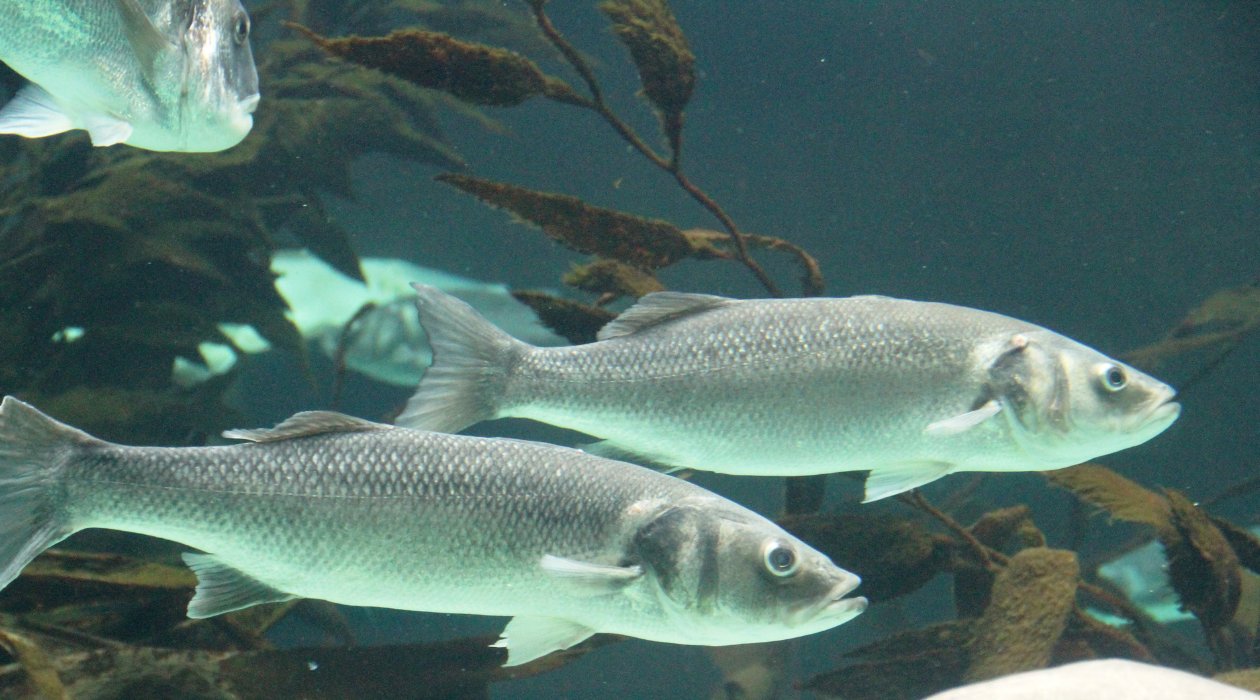
Marine
The Good, The Bad & The Ugly: A Guide to the Bass Fishery Management Plan Consultation
Since its founding more than a decade ago, the Angling Trust has campaigned for better management of the bass fishery and a fairer deal for bass anglers. Together, we have urged the government to protect juvenile and spawning bass, to phase out destructive commercial fishing methods like inshore netting, and to set catch limits within scientific advice – even accepting proportionate limits for the recreational anglers in the pursuit of a recovered and sustainably manage bass stock.
The Bass Fishery Management Plan, currently open to public consultation until the 1st of October 2023, represents the biggest opportunity we have had as a sector to have our say in the management and future of our beloved bass. You can read the Executive Summary of the Bass Fishery Management Plan here. As newly recognised stakeholders, recreational sea anglers have been more involved in the development of fisheries management than ever before. This is especially evident with the almost 50:50 split of recreational anglers and commercial fishers engaged through the Policy Lab stakeholder engagement process for the Bass Fishery Management Plan. It is a testament to the growing recognition of the socio-economic importance of our sport to coastal communities across the country.
Over the last 18-months the Angling Trust, together with Bass Anglers Sportfishing Society, have been working hard to lobby Defra on behalf of recreational sea anglers to ensure our shared priorities are included within the Bass Fishery Management Plan. This includes a fair deal for recreational sea anglers accessing fishing opportunities, recognition of the socio-economic importance of big bass for angling, protections for juvenile and spawning bass, phasing out inshore netting, a crackdown on discards and illegal landings and a deviation away from Maximum Sustainable Yield.
Through the Bass Fishery Management Plan there are also unique opportunities to deliver better protections for at-risk migratory fish species by tackling bycatch caused by commercial bass fishing that poses a major threat to the survival of these species. Often thought of as freshwater species, salmonids spend much of their lives moving along or living within our coastal waters, occupying similar habitats as commercially viable species such as bass, leaving them vulnerable to accidental capture. This is especially the case with indiscriminate methods, notably gillnetting, which leads to high levels of mortality for salmonid bycatch.
With salmon and sea trout stocks on many of our principal salmon rivers (PSRs) at their lowest ever levels, action must be taken wherever possible to halt this catastrophic decline. The UK is required to protect salmonids, including their migration pathways, under a swath legislation and international agreements such as the Habitats Directive, the NASCO implementation plan, and OSPAR. This is why the Angling Trust is glad to see measures towards protecting migratory species, such as phasing out inshore netting, included within the Bass Fishery Management Plan.
What are Defra proposing? The below is taken from the Bass Fishery Management Plan consultation document.
The nine goals outlined in this FMP are:
- Inclusive stakeholder engagement structures to inform management of the bass fishery
- Equitable access to the bass fishery, while prioritising stock sustainability
- Minimise discarding of bass bycatch where survival rates are low
- Encourage and facilitate full compliance with bass regulations
- Maximise the benefits of bass fishing for local coastal communities
- Sustainable harvesting of the bass stock in line with scientific advice
- Protecting juvenile and spawning bass
- Minimise the impact of bass fishing on the wider marine ecosystem
- Mitigate against and adapt to the impact of climate change on bass fishing
While there are multiple complex interactions, synergies and tensions between these goals, the overarching aim of the FMP is to ensure stocks are harvested sustainably whilst benefiting a diverse range of environmental, commercial, recreational and social interests.
In the short-term, improvements to bass management measures to help ensure sustainability and flexibility for the fishing sector include:
- The establishment by governments of bass management groups to facilitate stakeholder participation in management decisions
- Exploring opportunities to develop more adaptive management systems which protect the stock and allow fishers to take advantage of any increases in stock abundance
- Considering whether to review the existing domestic authorisation system for an alternative approach to align fishing opportunities with other FMP goals (for example, reducing discarding, minimising environmental impact and maximising benefits to local coastal communities)
- Reviewing the most suitable timing and duration of the closed seasons
- Considering how best to monitor and reduce discarding, for example, using existing data recording tools like the CatchApp and/or managed access (within existing annual limits) in return for data
- Encouraging better monitoring, the use of gear modifications and engagement with relevant schemes to help reduce the incidence of sensitive species bycatch associated with bass fishing
- Improving communication and understanding of bass regulations, including Registered Buyers and Sellers (RBS)
In the medium-long term, there are further actions that could be considered to help meet the goals outlined above. These include:
- Reviewing appropriate size limits for the bass stock, for example, a MCRS or slot sizes
- Reviewing appropriate harvest strategies for bass in light of outcomes from the International Council for the Exploration of the Sea (ICES) 2023-24 benchmarking exercise
- Encouraging participation in Remote Electronic Monitoring (REM) early adopter programmes where appropriate to improve data collection on discards and sensitive species bycatch
- Supporting industry to decarbonise and adapt to the impacts of environmental change on bass distribution and abundance
- Reviewing the practice of shallow inshore and shore-based netting to determine whether additional protections are needed to prevent migratory fish bycatch
While the overall direction of travel appears positive for supporting recovery of the bass stock and phasing out environmental damaging practices like inshore netting, the Angling Trust remain dissatisfied with the pace and strength of the proposed changes. We believe that these actions do not go far enough to achieve a world-class bass fishery for all stakeholders or to protect the future of the bass population. We want to see more protections for juvenile and spawning bass, a crackdown on discards and stronger enforcement of bass regulations.
The latest ICES (International Council for the Exploration of the Seas) advice indicates that the seabass stock remains in poor condition, despite management intervention in recent years. It advises fisheries managers that the spawning stock biomass (SSB) remains below safe limits and is expected to further decrease slightly in 2025. The UK Government must prioritise managing the sustainable management of the bass fishery over conflicting commercial interests and it is crucial that sustainable limits are set and enforced otherwise the observed improvements in the stock may be lost. We do not want bass to become another example of boom-and-bust fisheries management.
All anglers recognise the socio-economic importance of bass to the recreational sea angling sector. A thriving bass fishery supports jobs and livelihoods through the tackle industry, bass guiding, charter boats and angling competitions, as well as indirectly supporting coastal communities as anglers visit bass hotspots in search of these prized fish. Bass fishing is also a form of escapism for many anglers and a vital part of supporting their mental and physical wellbeing. We want the government to recognise the important socio-economic contribution of bass angling and to maximise these benefits by managing the bass stock in line with those benefits.
While the Bass Fishery Management Plan is far more advanced than other fisheries management plans, like the Southern North Sea & Eastern Channel Flatfish FMP, and outlines a positive direction of travel, it still falls short of expectations and acts more as a placeholder for Defra rather than committing the government to ambitious and worthwhile actions that are going to deliver and achieve a world-class fishery that priorities coastal communities, sustainable fisheries and a healthy marine environment.
The Angling Trust strongly encourage all interested members of the recreational sea angling and salmon angling communities to respond to the bass fishery management plan consultation. We have prepared guidance notes on the consultation for anglers who wish to respond. You can find the guidance for sea anglers here and the guidance for game anglers here.
The Angling Trust are also hosting a Virtual Sea Angling Forum on the Bass Fishery Management Plan on Tuesday 19th September 2023. Sign up here.
As recreational sea anglers, it’s essential to stay informed and engaged in matters that directly impact the health of our ocean and the future of our sport. The Angling Trust is committed to fighting for fish, fishing and the environment.
The Angling Trust are responding to this consultation and will publish their response shortly.
Become a member of the Angling Trust
This article was updated on Monday 18th September 2023 to upload our consultation guidance for sea anglers and game anglers.
You might also like

BRONZE FOR ENGLAND VETERANS AS MASTERS AND DISABLED GO…

The Angling Mental Health Initiative’s Let’s Go Fishing events…

What to do if fish are gasping or spawning.…

WORLD CHAMPS GOLD FIRMLY IN THE SIGHTS OF ENGLAND…

We Fish as One supports Pride Month 2025

Sunglasses giant backs Angling Trust

Join in with the Check, Clean, Dry campaign this…

From TikTok to the classroom – Orchard School follows…

DRENNAN ENGLAND FEEDER TEAM WIN WORLD CHAMPS!

Family fishing at Aston Park Fisheries where have a…

Let’s Go Fishing By The Sea! – AMHI deliver…

FOURTEEN SIDES ALREADY THROUGH TO SUPERCUP ROUND 2!

BRONZE FOR ENGLAND VETERANS AS MASTERS AND DISABLED GO…

The Angling Mental Health Initiative’s Let’s Go Fishing events…

What to do if fish are gasping or spawning.…

WORLD CHAMPS GOLD FIRMLY IN THE SIGHTS OF ENGLAND…

We Fish as One supports Pride Month 2025

Sunglasses giant backs Angling Trust

Join in with the Check, Clean, Dry campaign this…

From TikTok to the classroom – Orchard School follows…

DRENNAN ENGLAND FEEDER TEAM WIN WORLD CHAMPS!

Family fishing at Aston Park Fisheries where have a…

Let’s Go Fishing By The Sea! – AMHI deliver…

FOURTEEN SIDES ALREADY THROUGH TO SUPERCUP ROUND 2!

BRONZE FOR ENGLAND VETERANS AS MASTERS AND DISABLED GO…

The Angling Mental Health Initiative’s Let’s Go Fishing events…

What to do if fish are gasping or spawning.…

WORLD CHAMPS GOLD FIRMLY IN THE SIGHTS OF ENGLAND…

We Fish as One supports Pride Month 2025

Sunglasses giant backs Angling Trust

Join in with the Check, Clean, Dry campaign this…

From TikTok to the classroom – Orchard School follows…

DRENNAN ENGLAND FEEDER TEAM WIN WORLD CHAMPS!

Family fishing at Aston Park Fisheries where have a…

Let’s Go Fishing By The Sea! – AMHI deliver…









